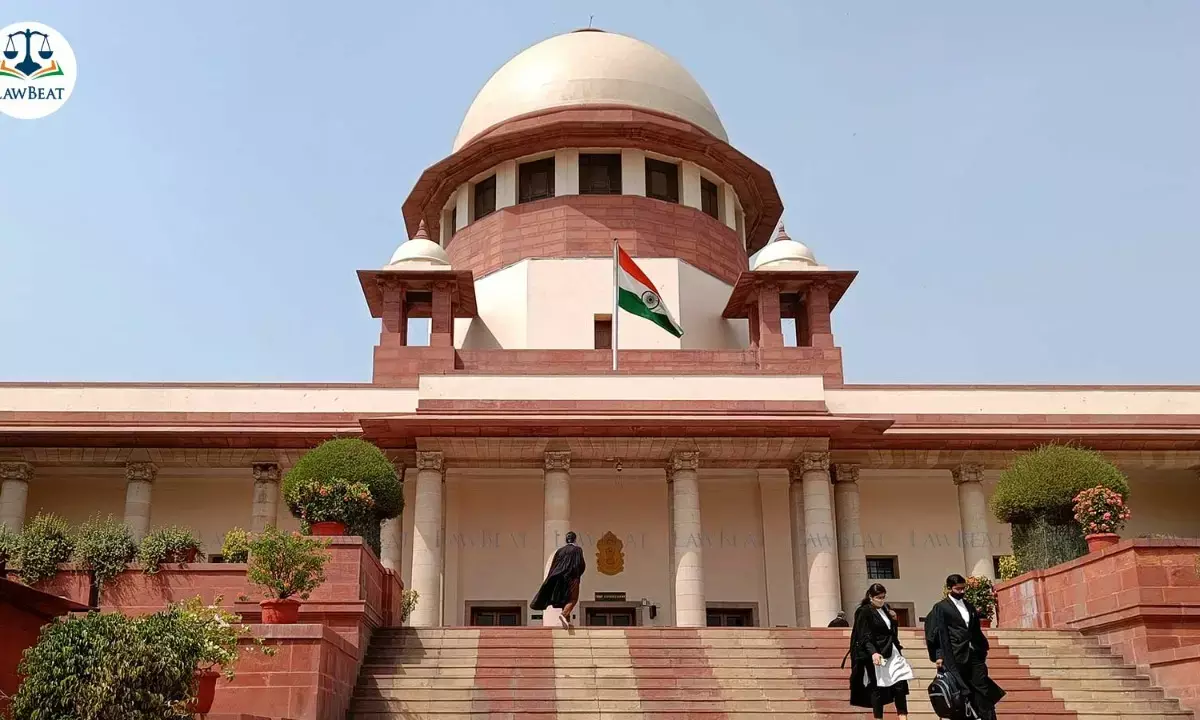Married Sons, Daughters Entitled to Compensation Under MV Act Irrespective of Dependency: SC

The Supreme Court has held that legal representatives, including married and earning sons and daughters, are entitled to claim compensation under the Motor Vehicles Act, regardless of financial dependency on the deceased.
A bench comprising Justices Sanjay Karol and Joymalya Bagchi made this observation while enhancing compensation awarded to the children of a deceased victim from ₹21.7 lakh to over ₹38 lakh. The appellants, Jitender Kumar and his sister, had challenged the Punjab and Haryana High Court's ruling denying full compensation on the ground that they were not financially dependent on their deceased father, Niranjan Das.
Niranjan Das, 64, died in 2010 after the car he was travelling in was hit by a trailer coming from the wrong direction in a rash and negligent manner. The claimants sought ₹5 crore in compensation under Section 166 of the Motor Vehicles Act, asserting that their father was a self-employed consultant and flour mill owner earning approximately ₹3.5 lakh per month.
The Motor Accident Claims Tribunal (MACT), however, awarded only ₹1.6 lakh in 2014, citing the children’s lack of financial dependency. The High Court later enhanced the compensation to ₹21.7 lakh but upheld the Tribunal’s view on dependency.
Reversing this, the Supreme Court held that the legal representative’s entitlement to compensation is not contingent upon establishing financial dependency. Citing National Insurance Co. Ltd. v. Birender (2020) and Seema Rani & Ors v. Oriental Insurance Co. Ltd. (2025), the Court reiterated that even married and financially independent children are eligible to claim compensation as legal heirs.
“It would be the bounden duty of the Tribunal to consider the application irrespective of the fact whether the legal representative concerned was fully dependent on the deceased and not to limit the claim towards conventional heads only,” the bench noted.
The Court also observed that the High Court had erroneously estimated the deceased’s monthly income at ₹50,000 without accounting for documentary proof. Referring to his 2011–12 income tax return, the bench noted that his actual annual income was ₹10.36 lakh (approximately ₹86,360 per month).
While the Court held that no amount towards future prospects was to be awarded, in line with Pranay Sethi (2017), it allowed a 10% enhancement under conventional heads—loss of estate, consortium, and funeral expenses—based on the principle that such amounts should be revised every three years.
Accordingly, the Court directed that the enhanced compensation be paid to the two sons and a daughter of the deceased within four weeks.
Case Title: Jitender Kumar & Anr. v. Sanjay Prasad & Ors.
